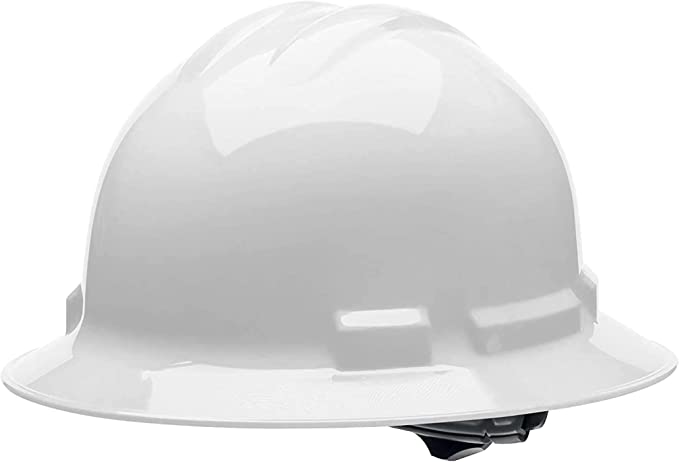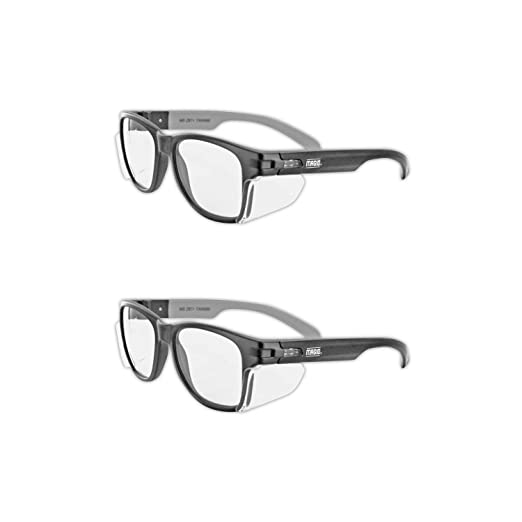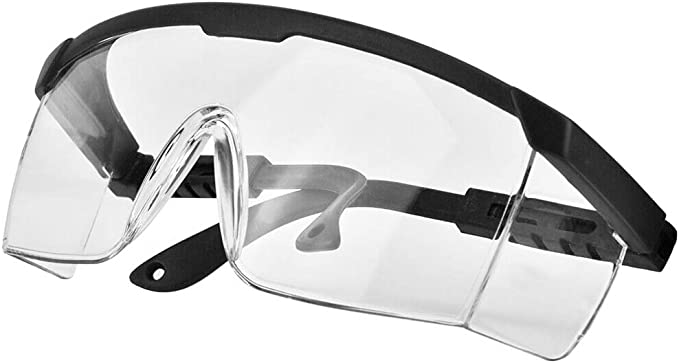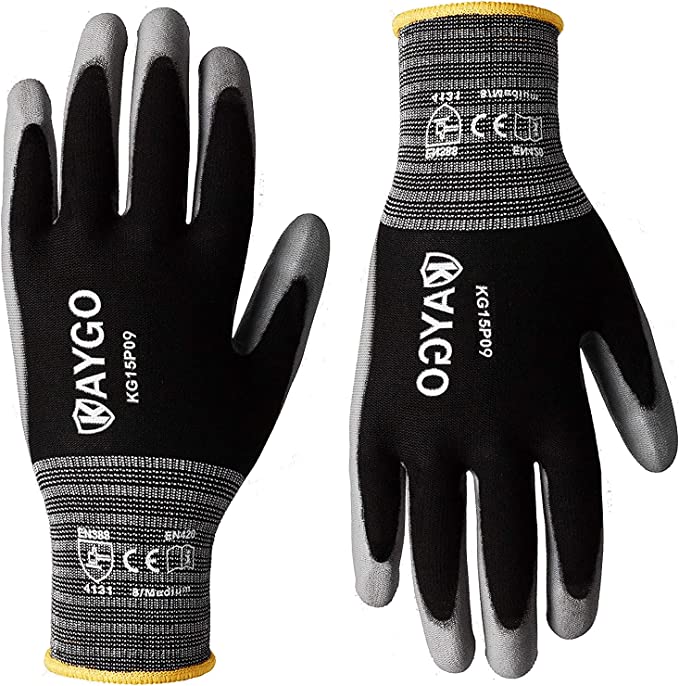7 Types of Personal Protective Equipment for Electrical Works

Personal Protective Equipment (PPE) is essential for anyone working in the electrical industry. It is critical to protect yourself and others from potential electrical hazards, such as electrical shocks, burns and arc flashes. There are several types of PPE that are specific to electrical work, including gloves, face shields, hard hats and more. In this article, we will explore the different types of personal protective equipment that are used in electrical work and how they protect workers from potential hazards.
Types of Personal Protective Equipment (PPE)
Types of personal protective equipment (PPE) for electrical works are:
1. Head protection
Head protection is crucial for anyone working with electricity. Electrical work can be dangerous and unpredictable, and without proper protection, a worker’s head can be exposed to severe injuries. Here are some options for head protection for electrical works:
a. Class A or G hard hats
Class A hard hats provide impact and penetration resistance along with limited voltage protection (up to 2,200 volts).
b. Class B or E hard hats
Class B hard hats provide the highest level of protection against electrical hazards, with high-voltage shock and burn protection (up to 20,000 volts). They also provide protection from impact and penetration hazards by flying/falling objects.
c. Class C hard hats
Class C hard hats provide lightweight comfort and impact protection but offer no protection from electrical hazards.
d. Bump hat
A “bump hat,” another type of protective headgear available on the market, is created for usage in spaces with limited head clearance. They are advised for locations where defense against head bumps and lacerations is required.
2. Eye protection
Another item of safety equipment necessary on practically all job sites is eye protection. Eye protection and occasionally hard hats are required by manufacturers for anybody, not just employees, entering the production area. Goggles and safety glasses with side shields are two examples of eye protection equipment. Common safety glasses nearly always include side protection, whether or not they are prescription glasses. A full face shield may be necessary on occasion.
a. Safety spectacles
Safety spectacles contain impact-resistant lenses and metal or plastic safety frames. Some versions come with side shields.
b. Goggles
Goggles are tight-fitting eye protection that completely covers the eyes, eye sockets and the facial area immediately surrounding the eyes and provide protection from impact, dust and splashes. Some goggles will fit over corrective lenses.
c. Welding shields
Welding shields, made of vulcanized fiber or fiberglass and equipped with a filtered lens, shield the eyes from infrared or intense radiant light burns as well as flying sparks, metal spatter, and slag chips generated during welding, brazing, soldering, and cutting operations.
d. Laser safety goggles
Laser safety goggles protect against intense concentrations of light produced by lasers. The type of laser safety goggles an employer chooses will depend upon the equipment and operating conditions in the workplace.
e. Face shields
These transparent plastic sheets cover the whole width of the worker’s head, from the eyebrows to just below the chin. For glare prevention, some are polarized. Face shields defend users from annoyance particles and probable liquid droplets or sprays, however, they are insufficient against impact dangers. Face shields will offer more protection against impact dangers when worn in conjunction with goggles or safety glasses.
3. Foot and leg protection
Foot and leg protection choices include the following:
a. Leggings
Leggings protect the lower legs and feet from heat hazards such as molten metal or welding sparks. Safety snaps allow leggings to be removed quickly.
b. Metatarsal guards
Metatarsal guards protect the instep area from impact and compression. Made of aluminum, steel, fiber, or plastic, these guards may be strapped to the outside of shoes.
c. Toe guards
Toe guards fit over the toes of regular shoes to protect the toes from impact and compression hazards. They may be made of steel, aluminum or plastic.
d. Combination of foot and shin guards
A combination of foot and shin guards protects the lower legs and feet and may be used in combination with toe guards when greater protection is needed.
e. Safety shoes
Safety shoes have impact-resistant toes and heat-resistant soles that protect the feet against hot work surfaces common in roofing, paving and hot metal industries. The metal insoles of some safety shoes protect against puncture wounds. Safety shoes may also be designed to be electrically conductive to prevent the buildup of static electricity in areas with the potential for explosive atmospheres or nonconductive to protect employees from workplace electrical hazards.
4. Hearing protection
Section III, Chapter 5, of the OSHA Technical Manual includes requirements concerning hearing protection. The need for hearing protection is based on the ambient sound level of the worksite or the industrial location. Workers are usually required to wear some hearing protection when working in certain areas, usually in the form of earplugs or earmuffs.
Some types of hearing protection include:
a. Single-use earplugs
Single-use earplugs are made of waxed cotton, foam, silicone rubber or fiberglass wool. They are self-forming and, when properly inserted, they work as well as most molded earplugs.
b. Pre-formed or molded earplugs
Pre-formed or molded earplugs must be individually fitted by a professional and can be disposable or reusable. Reusable plugs should be cleaned after each use.
c. Earmuffs
Earmuffs require a perfect seal around the ear. Glasses, facial hair, long hair or facial movements such as chewing may reduce the protective value of earmuffs.
5. Fire-retardant clothing
Special clothing made of fire-retardant material is required to be worn by electricians, engineers and any person who may be exposed to an arc flash. Fire-retardant clothing is often required for maintenance personnel who work with high-power sources such as transformer installations and motor-control centers. An arc flash in a motor-control center can easily catch a person’s clothes on fire. The typical motor-control center can produce enough energy during an arc flash to kill a person 30 feet away.
6. Gloves
Gloves are another frequent item of protective apparel. When working on electrified circuits, electricians frequently don leather gloves with rubber inserts.
These gloves are usually rated for a certain amount of voltage. They should be inspected for holes or tears before they are used. Kevlar gloves help protect against cuts when stripping cable with a sharp blade.
7. Safety harness
Safety harnesses provide protection from falling. They buckle around the upper body with leg, shoulder, and chest straps; and the back has a heavy metal D-ring. A section of rope approximately 6 feet in length, called a lanyard, is attached to the D-ring and secured to a stable structure above the worker. If the worker falls, the lanyard limits the distance he or she can drop. A safety harness should be worn:
1. When working more than 6 feet above the ground or floor
2. When working near a hole or drop-off
3. When working on high scaffolding




















 Best Electrical Tapes for Outdoor Use: Buying Guide
Best Electrical Tapes for Outdoor Use: Buying Guide  What is an Arc Flash Relay? How Does it Work?
What is an Arc Flash Relay? How Does it Work?  What is a Dual Function Circuit Interrupter? And Its Function
What is a Dual Function Circuit Interrupter? And Its Function  Advantages and Disadvantages of Incandescent Lamps
Advantages and Disadvantages of Incandescent Lamps  VFD Parts: A Guide to Their Essential Functions
VFD Parts: A Guide to Their Essential Functions  Applications of 3-Phase Induction Motors in Industries
Applications of 3-Phase Induction Motors in Industries